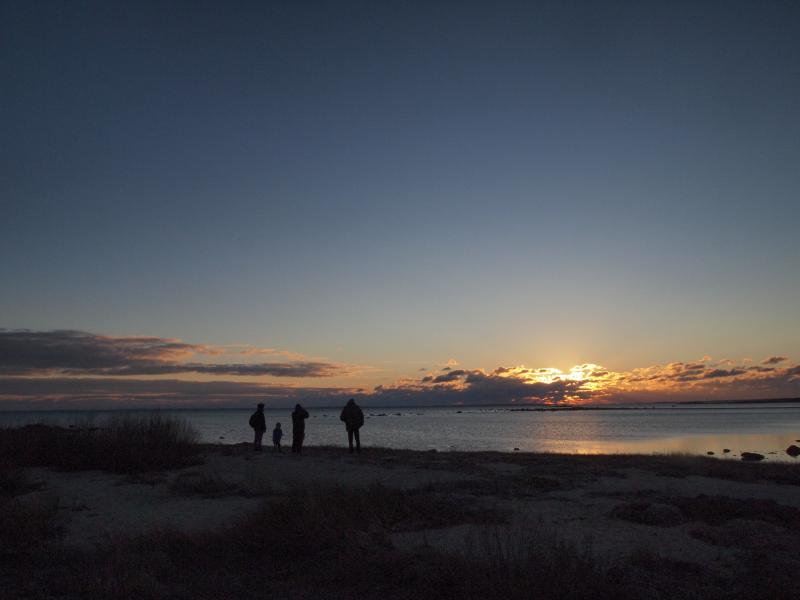Winter Nights
The unseasonably warm weather lately means we have been spending a lot of time talking about whether it feels like winter; there’s not much of a chill in the air, there’s no snow on the ground or ice anywhere. But there is one winter thing to complain about: it is dark. The sun sets early, and night settles in fast, encouraging everyone to sit tight in their houses. I journeyed into the woods after dark one night and my flashlight caught the twin glints of some creature’s eyes. It spooked me, I’ll admit.
There are other glints in the darkness: on long winter nights, the stars seem brighter. Like many things that mark the seasons, this has to do with the earth’s orientation: in the winter, we in the Northern Hemisphere are facing away from the center of the Milky Way, out towards the galaxy’s hinterlands. In the summer, we see more stars, and all that light makes the individual stars appear dimmer. The darker skies of winter gives the stars we do see more room to shine.
One of the most easily recognizable winter constellations is Orion, easily identified by the three stars that make up Orion’s belt. I was helping fellow MassLIFT-Americorps member Tanya with an orienteering program at one of Wareham’s elementary schools when one of the boys told us he had already learned to navigate. Then he appeared to veer wildly off subject.
“You know the hero guy?” he asked.
The teachers, Tanya, and I tossed out bewildered guesses, mostly of the DC or Marvel variety: Thor, Superman, Wolverine.
“No,” the boy said with a frown. “Orion.”
So he hadn’t moved off the subject of orienteering at all: Orion’s belt rises in the east and sets in the west, and can be used for navigation. And Orion was a hero guy, of sorts, or at least a mighty hunter. One version of the Orion myth holds that he was such a skilled hunter that he was hired to kill a plethora of vicious beasts; after succeeding, he vowed to kill every animal on earth. This angered the goddess Gaia, who sent a scorpion to kill Orion. The scorpion succeeded, and Orion was placed amongst the constellations—along with the scorpion, which explains why the constellations Orion and Scorpius never share the sky.
It all seems a bit peculiar, maybe. But everyone has to reckon with the long nights one way or another, and often we are inside telling or listening to stories; sharing them, whether through television or written or spoken word.
So it might not look like winter when you venture outside during the day, and I will set aside questions of global climate change to encourage you to enjoy the warmth while it lasts, along our shore, in our salt marshes or cranberry bogs or forests. But some things hold steady from the Greeks through to today, so if early nightfall drives you inside, you can remember: it is winter, after all.













